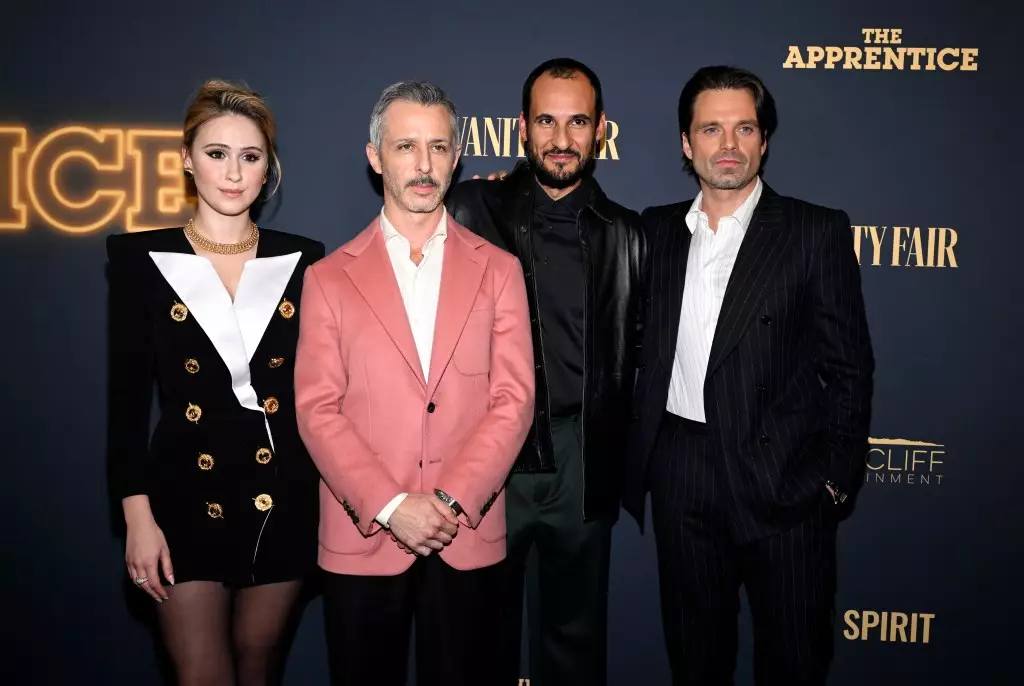The cinematic landscape is littered with stories of perseverance, but few embody this spirit as vividly as Ali Abassi’s “The Apprentice.” Following its much-anticipated premiere in New York, the film, which chronicles Donald Trump’s formative years in real estate, faced significant hurdles on its journey to the screen. At the center of the film’s last-minute revival was James Shani, the co-founder of Rich Spirit, who demonstrated unwavering determination amid industry turmoil.
A film’s journey from conception to release is often fraught with challenges, and “The Apprentice” was no exception. Initially, the project struggled when its original financier, Kinematics, withdrew support. This move left the film’s future precarious, especially given Kinematics’ ties to Trump supporter Dan Snyder. The drama escalated further when Trump’s legal team intervened, issuing threats and a cease-and-desist order against the filmmakers, as they sought to depict the controversial figure on screen.
Against this backdrop of corporate maneuvering and legal threats, the film had already gained attention at prestigious film festivals such as Cannes and TIFF. However, its fate hung in the balance, characterized by uncertainty and anticipation among creators and viewers alike. Shani’s intervention as a distributor marked a turning point in the film’s convoluted narrative, a testament to the lengths some industry professionals will go to ensure that stories are told, even when facing potent adversaries.
A Bold Step Amidst Industry Fear
During the film’s premiere, Shani’s palpable excitement resonated with the audience, highlighting the gravity of his role in advancing “The Apprentice.” He acknowledged the struggle of bringing the film to fruition, praising Ortenberg, the head of Briarcliff Entertainment, for his courage to support the project despite the risks involved. Shani’s recognition of a single distributor’s decision to back the film touches on a broader theme in the industry: the hesitancy that often grips content creators in politically charged climates. This raises important questions about artistic freedom, commercial viability, and the responsibilities of those who finance cinema.
Shani’s reflection that it took decades of career cementation for someone to take a stand speaks volumes about the state of contemporary filmmaking; it underscores the obstacles that can stifle creative expression. This moment at the DGA Theater serves not just as a celebratory occasion, but as a critical commentary on the current zeitgeist—where commercial pressures and public sentiments can overshadow the artistic visions.
At the heart of “The Apprentice” lies a critique of power dynamics and moral ambiguities. The film portrays Trump’s character at a complex intersection of charm, ambition, and brutality, particularly through a dark portrayal of his domestic relationships. Abassi’s commitment to representing uncomfortable truths raises eyebrows, especially in light of the increasing political polarization in the United States. His assertion that both political parties are part of the human experience challenges audiences to reflect on their perceptions of moral absolutes in American politics.
The depiction of Trump’s character oscillates between appealing and despicable, fostering a deeper inquiry into the nature of power itself. In one particularly chilling scene, the film captures an act of domestic violence, which Abassi notes is grounded in actual historical testimonies. His candid acknowledgment of the controversy surrounding this depiction invites discussion about the ethical implications of representing real-life figures and events, particularly when they involve significant human suffering.
As critics and audiences engage with “The Apprentice,” the emphasis on discourse surrounding the film becomes important. In his remarks, journalist Gabriel Sherman referenced the disquiet and unpredictability the film faced prior to its screening. His reflections illustrate the creative process’s fragility, often hanging by a thread depending on various stakeholders’ decisions.
Abassi’s statements hint at a need for cinema to act as a mirror to society, effectively challenging viewers to confront uncomfortable realities. The film’s narrative—while controversial—poses critical questions that cannot be ignored. As the industry grapples with the implications of depicting real-life personas embroiled in scandal and moral ambiguity, “The Apprentice” pushes boundaries, compelling both critics and audiences to reconsider the narratives we prioritize.
Ultimately, “The Apprentice” is set against a backdrop of shifting narratives in American cinema and politics. The resilience displayed by Shani, Abassi, and others involved in the film’s journey resonates deeply within an industry seeking authenticity amidst fears of reprisal. By translating tumultuous realities into cinematic form, “The Apprentice” stands as a case study in creative tenacity, forever altering the conversations surrounding storytelling in the process. As this film continues to unveil its layers, it is clear that the journey of art in times of unrest remains a compelling narrative worth exploring.


Leave a Reply